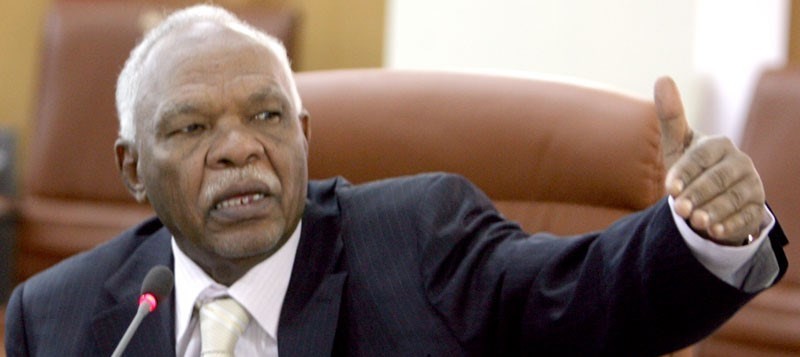Sudan edged back from a day-old order to block all oil exports from South Sudan on Sunday, saying it could reverse its decision if its neighbour stopped backing rebels, and bringing the countries back from the brink of confrontation.
The standoff, even if it is eventually resolved, is a stark reminder of the unpredictability of this small but, for China and other Asian buyers and producers, still significant corner of the crude industry.
Sudanese President Omar Hassan al-Bashir on Saturday accused South Sudan of arming insurgents in his territory and ordered the closure of pipelines carrying oil from the landlocked South through his country to Port Sudan on the Red Sea – currently the South’s only export route.
A day later, Sudan’s information minister told reporters Khartoum might not go through with the order and gave the South time to respond.
“We plan to close the oil pipelines within 60 days,” Ahmed Belal Osman said. “But if South Sudan is serious … and stops backing rebels, if we get international guarantees for that, then our door is open and we can reverse the stoppage.”
An industry source said cross-border crude flows were continuing normally as the oil operators had not been told by either government to halt any cargoes or turn off wells.
A stoppage would cut off the crude and transit fees that make up both countries’ main source of foreign income.
Bashir’s order raised fears of new tensions between old foes who came close to a full-blown war when skirmishes broke out along their disputed border in April 2012.
It was also a setback for the African Union, effectively tearing up an agreement it had brokered in March to resolve a dispute between the countries over transit fees that had shut the pipelines for 16 months.
South Sudan has long dismissed accusations of arming rebels bent on toppling Bashir, including the Sudanese Revolutionary Front (SRF), a coalition of insurgents operating in the western region of Darfur and along Sudan’s southern border.
South Sudan seceded from Sudan in 2011 under a peace deal that ended decades of civil war fuelled by ethnicity and oil. Many of SRF’s fighters sided with the south in that conflict.
CNPC OIL CLEARED
The Chinese state-owned oil firm CNPC last week said it had already sold 1.2 million barrels of South Sudanese oil following the settlement of the earlier dispute. The market for South Sudan’s oil is dominated by Chinese, Indian and Malaysian firms.
“We won’t confiscate this oil because it does not belong to South Sudan only but also to the (oil) companies, so it will be exported. We’ll take our share,” Osman said.
Sudan is entitled to export fees from the South, but is also locked in a row with oil firms over extra fees it wants from them, diplomats say.
South Sudan warned Khartoum it risked rupturing the main pipeline from the Palouge oilfield, filled with 700,000 barrels of crude, if it shut down facilities too quickly.
“This can cause the explosion of this pipeline and … you have 700,000 barrels getting into the environment and straight into the Nile,” South Sudanese Information Minister Barnaba Marial Benjamin told reporters.
He said around 6 million barrels of crude had arrived in Sudan’s oil facilities since South Sudan restarted pumping with an initial output of less than 200,000 barrels per day. Its production was around 300,000 bpd before its last shutdown in January 2012.
Oil experts warn it would be very costly to close the pipelines again. South Sudan would also have to shut down its entire oil production because it has no storage facilities.
Sudan’s top intelligence chief, Mohammed Atta, said Khartoum had repeatedly provided South Sudanese President Salva Kiir with proof of the South’s support for rebels operating in Darfur and two border states.
“We asked him to stop this support,” Atta said, in a rare public appearance. “They (the rebels) get supplied with weapons, ammunition, petrol, spare parts for cars, food … They send their wounded to hospitals in the south.”
He said South Sudan’s army was still occupying six areas along the border in violation of an agreement to set up a buffer zone monitored by U.N. peacekeepers.
In South Sudan’s capital Juba, military spokesman Philip Aguer said the Sudanese army had only on Saturday violated the buffer zone and briefly crossed into Kuer in Upper Nile state.
“We are going to protest,” he said.
By Ulf Laessing and Hereward Holland



